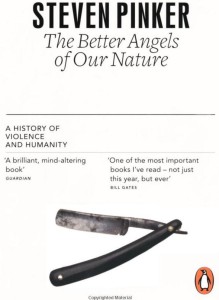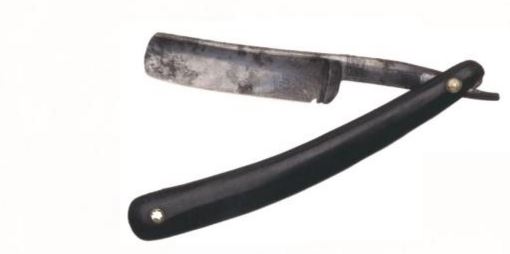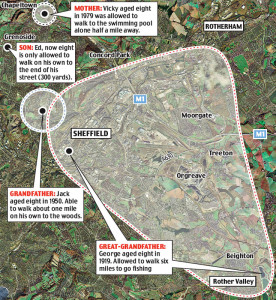Two years ago, on the recommendation of my mother I grabbed a couple of audiobooks for the long drive south to Cobar. They transformed the drive and I have been hooked ever since. Prior to that I don’t think I had listened to a recorded story since the A. A Milne ‘Winnie the Poo’ books while driving around the Northern Territory with dad aged 11 and maybe some early ‘Discworlds‘ with a friend in rural Queensland as a teenager. On long journeys I find I can descend into a vague fugue state, driving on automatic, lost in thought or singing along to music. Not so with an audioboook, the more gripping the narrative the better. The story seems to, for me at least occupy the social hindbrain and allow me to keep a more alert focus on the driving at hand. Since that trip, during which N and I listened to the full cast production of the fantastic “World War Z” by Max Brooks we have had a book on the go non-stop pretty much anytime we are in the car together and frequently outside of it as well. I have usually had at least a book going for myself alone as well and although I do try to mix in a bit of fiction I have mostly been listening to non-fiction this year.

In particular I have listened to three books by Steven Pinker on my way to and from work, whilst doing the dishes and so on. I began with “The Better Angels of Our Nature: Why Violence Has Declined”. Anybody who knows me well has at some point in the last two years had a Pinker conversation with me on the basis of this extraordinary read. The argument he puts forward is to my mind pretty unassailable. Violence has declined and we are without doubt living in the most peaceful period in human history. The book is compelling, though I failed to make much more than 200 pages progress in hard copy, it collected dust on my bedside for more than a year. In audio form it flew by and was gripping for the entire length.
There are three topics that I am still musing on months later and even after devouring another two of his books “The Black Slate” & “How the Mind Works“.
One. I had never before understood the rationale of M.A.D. From my naive perspective the very idea that Mutually Assured Destruction could stop wars was, frankly mad. Pinker illustrated the reasoning in a way that I had never considered previously. My inelegant simplification doesn’t do it justice, but it fit in with a detailed discussion of the very clear logic for making preemptive attacks. The policy gave powerful people a way to stand down and forego potential strategic advantage without losing face. I cannot think of a time previous where I have found myself feeling as sympathetic to military and government decision makers as when listening to this description of how the great powers, by extraordinary diplomacy avoided nuclear war.
Two. The treatment of criminals. It seems to me that Australia is not being very honest with itself about what purpose prisons serve. Pinker spends an extensive section on the nature of revenge and retributive justice and the widely acknowledged cathartic value of such justice. As well as a brief study of the historical transition away from capital punishment to the modern lip service rehabilitative justice system. Either our prisons are places of rehabilitation or they are places for punishment, they cannot in truth be both. If they are places for punishment then there are costs associated that we do not wish to acknowledge. Like the damage to the psyche of the guards and the toxicity that they can then bring into the community. If they are places for rehabilitation, where are the support services for ex cons, where are the jobs? Why is prison rape funny? Why does violent crime get such seemingly lenient sentences when drug crimes can receive incredibly harsh sentences? How on earth can we trust private corporations, with a clear profit motive to manage prisons and detention centers in anything remotely resembling a ‘just’ fashion? And lastly what then of the real monsters, serial killers, violent serial rapists (>50% recidivism see the next link) and extra-familial child abductors, some of whom have 15 year recidivism rates of greater than 42% effectively meaning more than one third of all such cases who are released will re-offend in some way within X years.
Three. Why the hell are people so afraid? I know why children don’t play outside any more, because they are not allowed to. At least part of the fear must be about the miss directed outrage, we victim blame. How could we forgive ourselves if something happened to them. Why did they let their child walk unattended. Why has my generation, who were given freedoms I cannot even imagine allowing my own children, become so disconnected from the factual reality that the world is a safer place now than it was when we were children. There were arguments about how much freedom I allowed my eldest and at what ages they were appropriate though he first rode his bike to school alone almost 5 year later than I was allowed to. I walked and/or rode my bike to school in grade 2 alone in Balmain, inner city Sydney, in the early eighties, that was normal, I don’t think it was even a cause for real worry. My school is extraordinary in the sheer quantity of students who travel actively to school. My class won the “Golden Boot” for the third time this year last week because every student had traveled actively to school on Wednesdays this month. Travelling actively includes “Park and Stride” which is being dropped 500m from school and walking the rest. This takes pressure off the drop off zones as well but the 500m is a generous measurement for most. Many schools I have been to have twice daily traffic jams. This map from a British Murdoch rag illustrates the staggering decline in childhood autonomy over the last few decades in the UK.
I think the expectation should be that children can move safely in the world.
People who limit their children’s freedom based on irrational fears are weird, and should be called out on their weirdness.
If that expectation of safety is jeopardised the fury should be immense and rapid and the consequences for risking that trust severe.
This should be said loudly and often until it sinks in. Children are and must be safe to independently navigate and explore the world.
This post has gotten way out of hand, the other two Pinker’s will have to wait for another day.
I have practiced calligraphy this evening. Produced nothing share able.


One thought on “Readings, I mean Listenings or possibly Rantings”